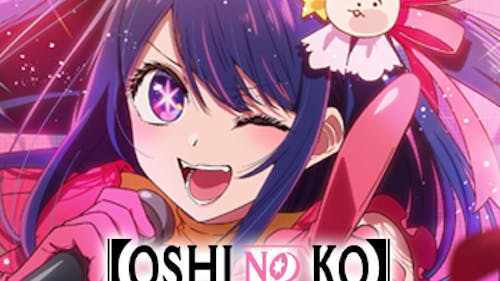'Oshi no Ko' should be added to your anime watchlist despite narrative issues

Just to state this right at the top, in case it wasn't clear, this article contains massive spoilers for the first season of "Oshi no Ko." I'll only be discussing what's been covered in the anime so far, but if you're still catching up or wish to enter the series totally blind, reader discretion has been advised.
As an adaptation of the manga series from the famed "Kaguya-sama: Love is War" written by Aka Akasaka, "Oshi no Ko" has been revered by critics and fans alike. Its debut was rewarded with the No. 1 spot on the popular anime discussion site MyAnimeList's Top Anime Series chart. It's regarded by many as the best anime of the season, if not the year as a whole.
"Oshi No Ko" starts by introducing Gorou Amamiya — a gynecologist working in Japan who is a secret fan of Japanese pop idol sensation Ai Hoshino. This interest was cultivated by Gorou's relationship with Sarina Tendouji, a young patient residing at his hospital, receiving care from the doctor for an unknown illness.
Not long after, we're introduced to Ai herself as the teen idol shows up unexpectedly at Gorou's hospital, where it's revealed she's pregnant with twins and wishes to keep the babies. After adequately hiding how star-struck he is, Gorou promises the singer a safe delivery for her children and the two grow closer over the course of her treatment.
As time goes by within the series, Gorou is confronted by a crazed fan of Ai, resulting in the assailant pushing him off a nearby cliff to his death right as Ai is about to enter labor.
Yet moments later, Gorou inexplicably wakes up in Ai's arms back at the hospital, where it’s revealed he has been reincarnated as one of the very children he was supposed to help deliver and is given the name Aquamarine. Moreover, the audience later finds out that his twin sister is the reincarnation of Sarina, now with the name Ruby.
The episode continues and follows the lives of the Hoshino twins as they enter the acting industry.
Another year passes, and Ai is ecstatic to have secured the largest concert of her career. On the day of the show, the same fan who killed Gorou learns of her address and arrives at her front door to assassinate her before committing suicide, all in front of a still-young (and understandably traumatized) Aqua.
Following her death, Aqua decides the only way the fan could have learned of both her location at the hospital and home residence was the result of insider information leaked by his unknown father. Aqua swears revenge against him and begins studying under the guidance of a film director and learns the identity of his father.
If all of that seems like a lot for one episode, it's because it is. Even with its 90-minute runtime, the show's introduction is nothing if not eventful. But its structure sparked within me a personal interest in just how different it was from other episodic stories.
I'm sure we've all been in this position before: You’re trying to convince a friend to pick up a series you positively adore, but you're having a hard time convincing them to stick with it long enough to watch past the first few episodes, i.e., before it starts getting good.
One aspect of any series with an overarching storyline is the establishment of certain aspects, such as the setting or main characters' personalities and motivations. Although these are all necessary components for any story, it’s fair to say these elements are typically introduced in such a way as to bog down the plot or at least provide an experience inconsistent with the one championed by fans of the series.
"Oshi no Ko" seemingly attempts to work around this pitfall by frontloading all of its exposition into one feature-length episode at the start of the series, as opposed to spreading it out across the first few installments.
Although this seemingly fixes the problem I mentioned earlier, I feel the idea's execution in this specific instance doesn't fully solve the problem it sought to address. The episode gives a comprehensive backstory for the main characters, but because it serves as a red herring for the actual story to come, a great deal of the exposition it provides is rendered moot.
The story set up in episode one is more or less wrapped up by its conclusion, which then sets the series up for its actual story, only for it to encounter many of the same problems that I mentioned before. The second substantial plot arc involves Aqua enlisting in a reality dating show in exchange for information regarding Ai’s performance history.
His time on set is meant to explore his mission to uncover his father's identity (as well as run parallel to Ruby's plotline of forming her own idol group). It’s through this plot line that we’re introduced to the remaining cast of main characters. Unfortunately, it causes the pace to lag somewhat as a result since the audience needs to have each character introduced and explained to them.
While I appreciate the series' production team for attempting a new style of storytelling and usually applaud any instances of writers misdirecting their audience, I feel as though the way these two elements are paired together in this instance leaves much to be desired.
Although I recognize the series itself is overall of high quality, I can't help but mourn the missed opportunity for what is otherwise an innovative narrative decision.



